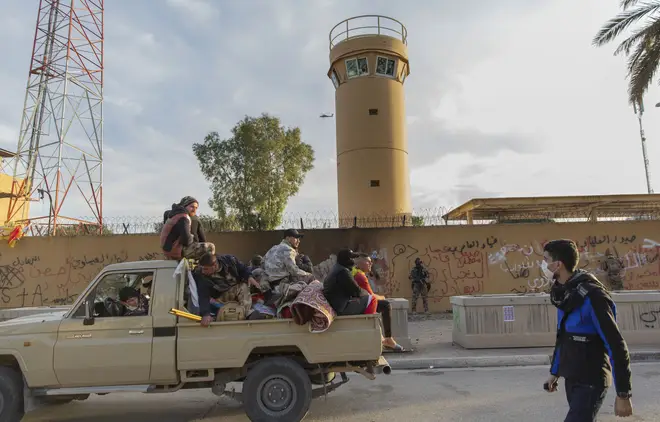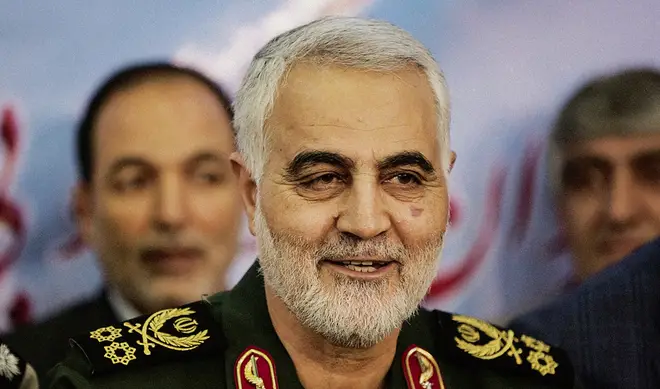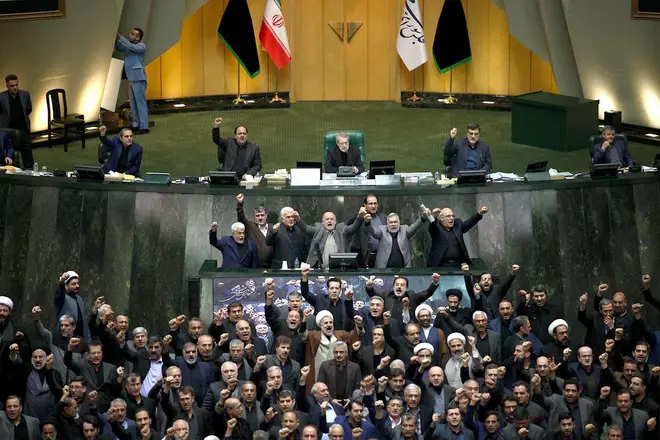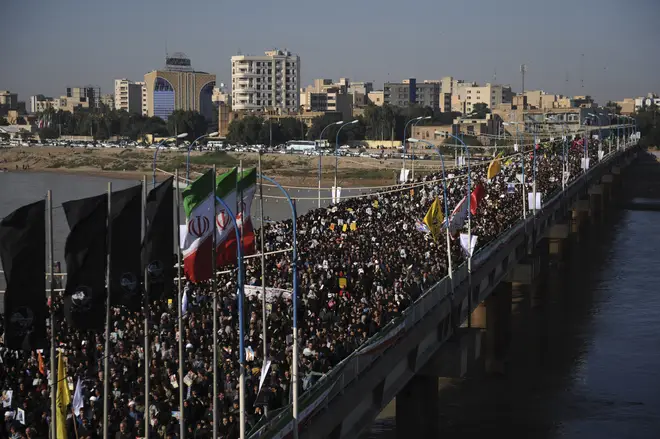
Matthew Wright 7am - 10am
5 January 2020, 20:00

More explosives have reportedly been fired near the American Embassy in Baghdad as tensions reach a fever-pitch between Iran and the US.
Foreign news agency AFP reported that at least three rockets could be heard landing in the city's heavily fortified Green Zone.
No deaths have been reported, although six people have been injured according to local police sources.
Yesterday, a number of US targets were also hit by rockets, including military bases where US soldiers are based.
Just minutes after media reports of the rocket strikes broke US President Donald Trump tweeted the US military 'will quickly & fully strike back,' perhaps disproportionately, if Iran hits a US target.
He said: "These Media Posts will serve as notification to the United States Congress that should Iran strike any U.S. person or target, the United States will quickly & fully strike back, & perhaps in a disproportionate manner.
"Such legal notice is not required, but is given nevertheless!"
These Media Posts will serve as notification to the United States Congress that should Iran strike any U.S. person or target, the United States will quickly & fully strike back, & perhaps in a disproportionate manner. Such legal notice is not required, but is given nevertheless!
— Donald J. Trump (@realDonaldTrump) January 5, 2020
The rockets are thought to be a retaliation to the killing of Iranian General Qassem Soleimani who died in a US Airstrike on Friday.
On Saturday, two rockets were fired near the US Embassy in Baghdad, while Balad Airbase, north of the city, has also been targeted by another three rockets, according to Sky News Arabia.
Mr Trump has already deployed 3,000 extra troops to Kuwait and the Royal Navy will accompany UK-flagged ships through the key oil route of the Strait of Hormuz.
General Soleimani was head of Iran's elite Quds Force and masterminded Tehran's regional security strategy.He was killed in the early hours of Friday morning in a targeted strike at Baghdad international airport.
The military leader’s funeral will take place within the next few days, with his body arriving in Ahvaz in southwestern Iran on Sunday.

The explosions came just hours after UK Prime Minister Boris Johnson called Soleimani a "threat to all of our interests."
Mr Johnson had been facing calls to cut his Caribbean holiday short to deal with the growing crisis, and broke his silence this evening with a statement which appeared to back Mr Trump's actions.
It is understood Mr Johnson spoke with Mr Trump earlier today.
The full statement said: "Today I have spoken with President Macron, President Trump and Chancellor Merkel, and will be speaking with other leaders in the coming days.
"General Qassem Soleimani posed a threat to all our interests and was responsible for a pattern of disruptive, destabilising behaviour in the region.
"Given the leading role he has played in actions that have led to the deaths of thousands of innocent civilians and western personnel, we will not lament his death.

"It is clear however that all calls for retaliation or reprisals will simply lead to more violence in the region and they are in no-one's interest.
"We are in close contact with all sides to encourage de-escalation.
"I will be speaking to other leaders and our Iraqi friends to support peace and stability."
Concerns over the stability of the region have been further escalated after Iran said it would no longer abide by the limits of the 2015 nuclear deal.
It ends an accord that blocked Tehran from having enough material to build an atomic weapon.
Earlier today, the Iraqi Parliament voted in for a resolution to expel all foreign troops from its land.

However, the vote was not legally binding and only the Iraqi government need to make the resolution law before it could be enforced.
Foreign forces, including the UK and US military, would also be banned from using Iraqi land, airspace or water for any reason under the terms of the vote.
The UK government has since urged Iraq to reconsider, saying the military coalition is to protect the area from the threat of ISIS.
Some 400 UK troops are stationed in Iraq in the fight against IS, while the US has 5,200, prompting fears of a withdrawal that could cripple the battle against the terror group.